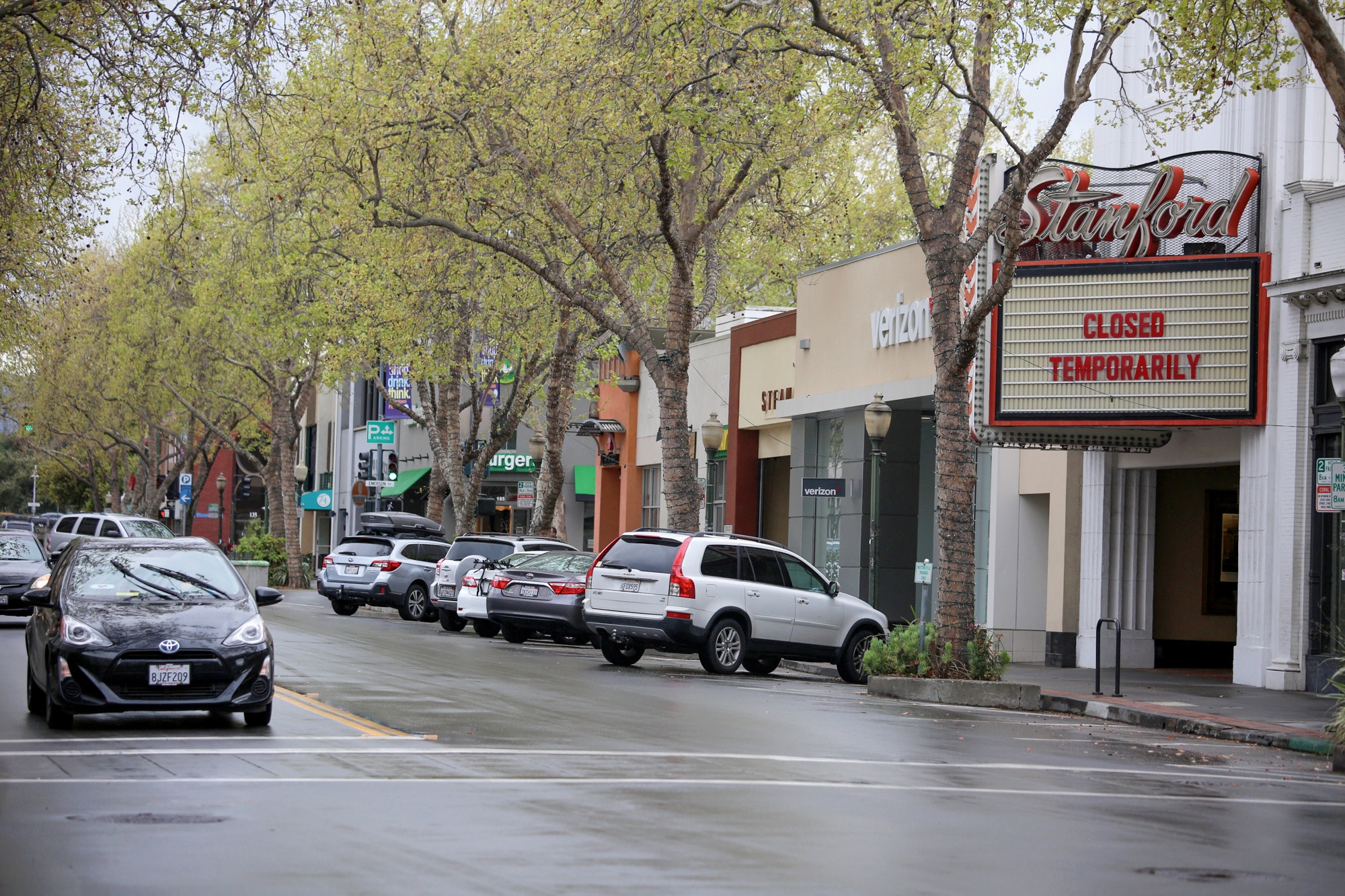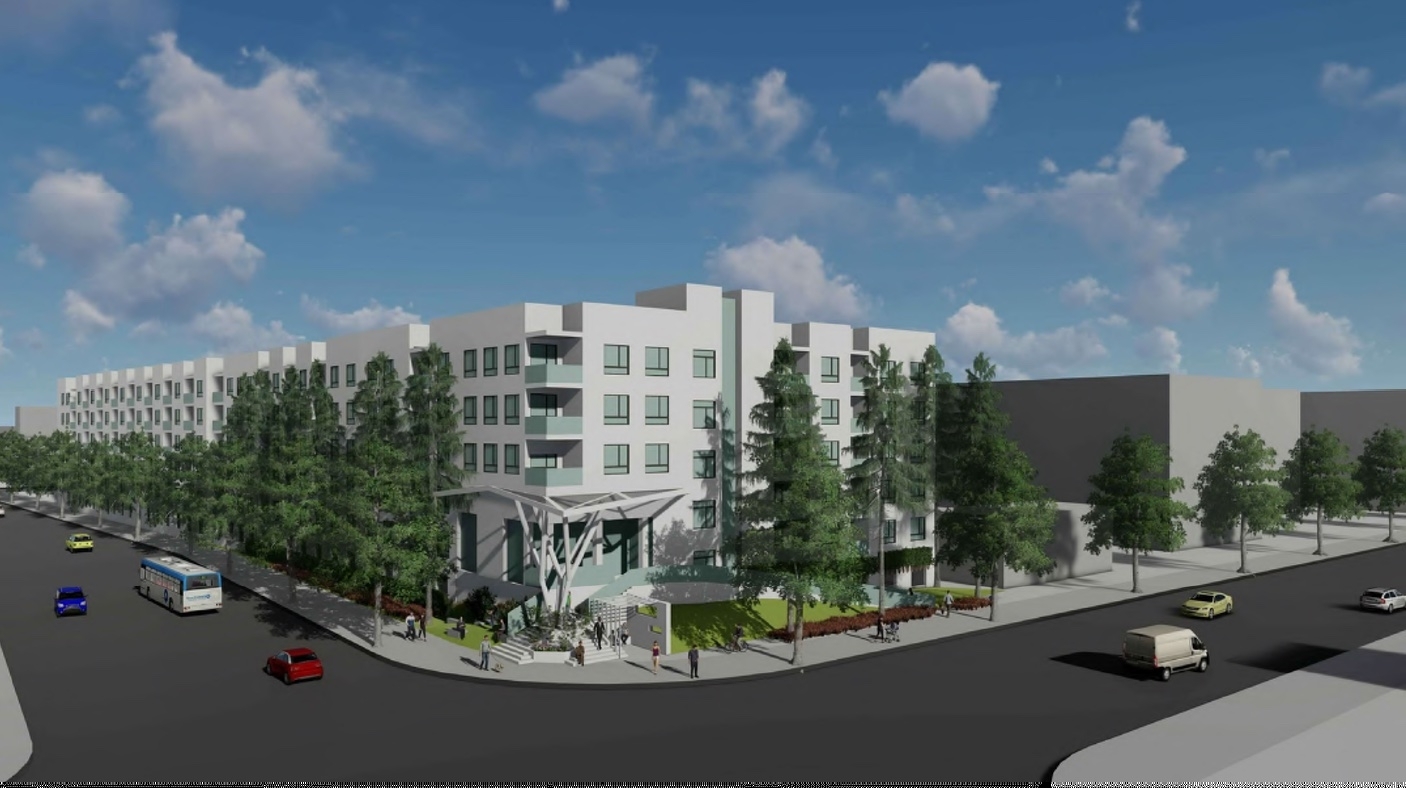Recognizing the devastating economic impacts of the COVID-19 pandemic, the Palo Alto City Council agreed at its annual retreat Saturday to make recovery its top priority for 2021, while also vowing to focus on affordable housing, social justice and climate change.
By a unanimous vote, the council adopted these four issues as its official priorities for 2021, signaling a desire to devote "particular, unusual and significant attention" to them this year. In doing so, just about every council member underscored the central importance of reviving — and possibly resetting — the local economy to account for the "new normal" spurred by the pandemic.
"It's hard for me to imagine anything more important," council member Alison Cormack said at the virtual meeting. "When I think about what we're supposed to do this year that will receive particular, unusual and significant attention, that's No. 1. You can make an argument that that is the only one on the list."
For some members, including Cormack and Eric Filseth, this means revisiting the city's trend of growing expenditures — which preceded the pandemic — and falling revenues and considering ways to reduce the budget to create a more sustainable path. Council member Lydia Kou suggested that the effort should include the hiring of an expert in retail to guide the city's economic recovery and assist small businesses that are struggling to get by. Council member Greg Tanaka suggested the city find new revenue sources and assist residents and businesses that have been walloped by the pandemic.
"I've talked to a lot of people whose businesses are on the edge, have failed or are about to fail," Tanaka said. "A lot of residents have lost their jobs or taken pay cuts or cuts in their hours. A lot of people are suffering. It's going to be a pretty big lift to recovery."
Tanaka and Cormack both supported adopting economic recovery as the sole priority for 2021. Once this suggestion failed to receive support from their colleagues, the council unanimously adopted the four priorities proposed by Vice Mayor Pat Burt. These are: economic recovery; housing for social and economic balance; social justice; and climate change, protection and adaptation.
The adopted priorities are largely consistent with suggestions that council members and residents had offered in the weeks leading up to the retreat. Hundreds of people responded to city surveys, with many voicing support for housing and transportation as critical priorities.
Others submitted letters or spoke at the Saturday retreat to urge the council to adopt a particular priority, whether it be tree protection, airplane noise and the expansion of the city's 47-mile fiber-optic ring. Several asked the council to prioritize "active transportation" by making bike and pedestrian improvements throughout the city.
"By making Palo Alto a more walkable and bicycle friendly city, we can strengthen the local economy, reduce our impacts on the environment, alleviate traffic congestion, decrease housing prices, improve the health of our citizens and make our city safer and more accessible for all," said Nicole Zoeller Boelens, speaking on behalf of a group of five residents who were advocating for bike improvements.
Andy Poggio, who has been involved in the city's past efforts to build out its fiber-optic ring, known as Fiber to the Premises, suggested that the council prioritize that effort to deliver high-speed internet to every residence and business. In addition to supporting people who work from home, Fiber to the Premises could "reverse the exodus" of businesses, he said.
"Tech companies are leaving Palo Alto and Silicon Valley, and startups aren't forming here," Poggio said. "One of the few additional attractions we can offer is Fiber to the Premises."
Economist Stephen Levy, speaking on behalf of the nonprofit Palo Alto Forward, suggested that the council prioritize "expanding housing opportunity and affordability."
"Those priorities also support the council's priority of climate change and equity by allowing more low- and moderate-income households to live here, to live closer to their jobs," Levy said. "Even though they may still commute, they won't be commuting 60 to 90 miles per day."
By choosing to adopt four priorities, council members suggested that some of the problems that the council wrestled with over the past 12 months will remain critically important in the next year. This includes the work on social justice initiatives that the council kicked off last June, in the aftermath of the May 25 killing of George Floyd by a Minneapolis officer and the subsequent demonstrations in Palo Alto and across the nation.
As part of the broad effort, the council has already reviewed and revised use-of-force policies in the Police Department, supported the creation of public art to signal its commitment to racial justice and commissioned a history of Black and brown communities in Palo Alto, a report that the Human Relations Commission presented earlier this month. The city is also reviewing its hiring practices and is planning to launch in the coming months "community circles" that will allow residents to meet in small groups to talk about race.
Council member Greer Stone agreed with Burt that social justice should be included on the council's priorities list for 2021.
"When we don't have the social justice issues in our face, on the news every single day, it's very easy to forget about the pervasive and systemic problems that exist within our community," said Stone, a former city and Santa Clara County human relations commissioner.
The council similarly agreed that it needs to advance its housing plan, which to date has failed to produce the number of new units that council members had hoped to see. In recent weeks, the city has seen some signs of hope on the housing front, with several developers proposing sizable residential developments after a multiyear period of very few applications.
By specifically prioritizing "housing for social and economic balance," as Burt proposed, the council signaled its desire to focus its effort on affordable or "workforce" housing. Mayor Tom DuBois suggested that the city pursue a pilot program in which affordable housing is paid for with public funds.
"I think we want an achievable plan," DuBois said. "We can't fund and build an unlimited amount of housing."
Council members also agreed that climate change initiatives should remain at the forefront of the City Hall agenda. COVID-19 has shown, Burt said, that "society and governments at all levels are in fact willing to do really incredibly disruptive and yet necessary changes to address an emergency."
Unlike with COVID-19, addressing the climate change emergency by improving active transportation would bring many ancillary benefits, including stronger bicycling and pedestrian infrastructure, he noted.
"When we walk and ride, we know each other, and we know our community better, and we value it more and we experience it more," Burt said.




Comments
Downtown North
Registered user
on Jan 30, 2021 at 6:30 pm
Registered user
on Jan 30, 2021 at 6:30 pm
Due to repeated violations of our Terms of Use, comments from this poster are automatically removed. Why?
Registered user
Community Center
on Feb 1, 2021 at 8:01 am
Registered user
on Feb 1, 2021 at 8:01 am
The multiple crises of 2020 have led Council to respond with 2021 priorities that would move the city forward in dealing with enormous challenges. In that light, each of the priorities is timely and needed. Curiously, the underlying driver for many of these issues -- the Covid-19 pandemic -- is not explicitly named. Perhaps that reflects the limited scope and power of Council to address public health conditions, much as education and school re-opening may be relegated to the School Board. But if social distancing and the slow distribution of vaccines, coupled with limited availability of testing is directly responsible for restricting business operations, community services and other forms of direct personal interaction, perhaps testing, tracing, vaccinating and treating the health needs of the community should be the highest priority. Certainly, without success in safeguarding pubic health, economic recovery will be delayed. Otherwise, I commend the Council for its work on setting priorities and look forward to metrics that will guide management in achieving the community's goals.
Registered user
Leland Manor/Garland Drive
on Apr 16, 2021 at 6:32 am
Registered user
on Apr 16, 2021 at 6:32 am
> "Council member Lydia Kou suggested that the effort should include the hiring of an expert in retail to guide the city's economic recovery and assist small businesses that are struggling to get by."
A PACC member now advocating the hiring of yet another overpaid and unnecessary outside consultant...this time a retail shopping expert?
What are the qualifications...a marketing degree, a handbag full of credit cards, and the ability to select items from an overpriced menu?
Seriously folks, some our our locally elected officials are seriously out to lunch again as usual.
Registered user
another community
on Apr 16, 2021 at 8:09 am
Registered user
on Apr 16, 2021 at 8:09 am
~ A PACC member now advocating the hiring of yet another overpaid and unnecessary outside consultant...this time a retail shopping expert?
A suggestion...if the PACC were to rebate all of the residents in Palo Alto for its (1) overpriced and lousy utility services, (2) lawsuit settlements paid out to cover various PAPD malfeasances, (3) overpaid city administrators and their CalPers retirement packages, and (4) wasteful use of outside consultant services etc., there would be plenty of Palo Alto residents with the monetary resources to restimulate the local economy.
No "retail" consultant needed to solve this one.
Registered user
Another Palo Alto neighborhood
on Apr 16, 2021 at 8:19 am
Registered user
on Apr 16, 2021 at 8:19 am
It is getting more and more difficult to find useful retail for everyday needs. Bed, Bath and Beyond was very useful and it has closed. Payless Shoes was very useful, it has closed. Macys Men Store was useful due to the fact that men who hate shopping could park outside, buy what they needed, and be back in the car in 10 minutes.
Retail is closing and it is forcing us to buy online. This has become even more noticeable during the pandemic, but many of us would support retail if it was locally available. Many items are just not practical to buy online, shoes need to be tried on, towels and bedding need to be felt, etc.
Many enjoy shopping online and will probably continue to do so. Others are forced to shop online because there is no alternative. Palo Alto has been against useful retail as long as I have lived here. It is now reaping what it has been sowing for the last 30+ years.
Registered user
East Palo Alto
on Apr 16, 2021 at 8:32 am
Registered user
on Apr 16, 2021 at 8:32 am
[Post removed due to same poster using multiple names]
Registered user
Mountain View
on Apr 17, 2021 at 4:00 pm
Registered user
on Apr 17, 2021 at 4:00 pm
No need to go to stores. Nearly everything is made overseas nowadays and easily available online.
And Amazon and Costco have very liberal return policies.
Registered user
Los Altos
on Apr 18, 2021 at 8:23 am
Registered user
on Apr 18, 2021 at 8:23 am
We use the pick-up and delivery service offered by many supermarkets. You simply place an online order and then pick the packaged items up.
For fresh produce and meat, we shop in person for best selection.
Clothing and household is ordered online as well.
This in turn saves time, gas, and aggravation.
Besides, window shopping and browsing is an utter waste of time unless one actually enjoys such an inane pastime.